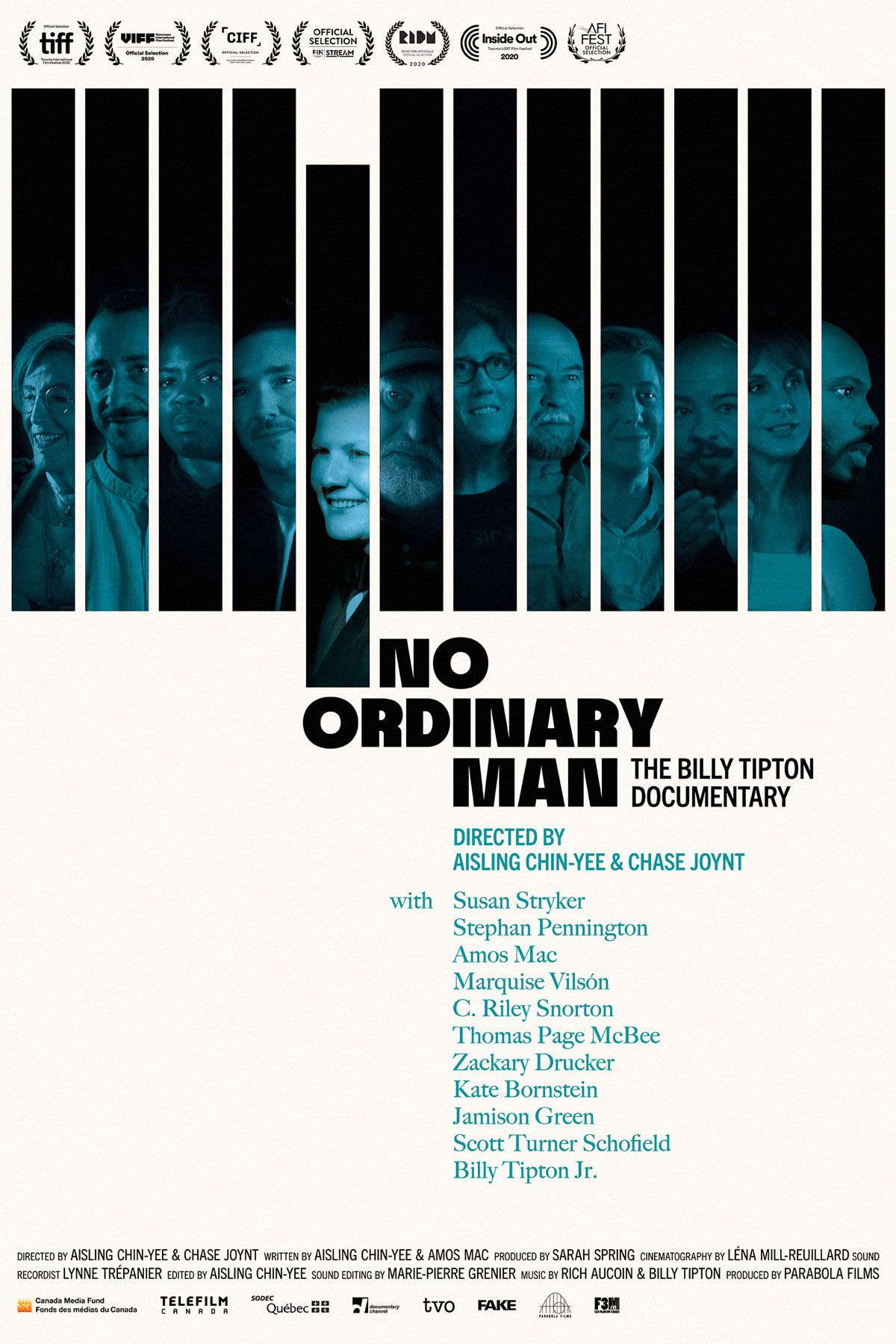No Ordinary Man
Synopsis
Near the end of Aisling Chin-Yee and Chase Joynt’s dazzling new film No Ordinary Man, writer Thomas Page McBee — one of the many interviewees to weigh in on the life and legacy of jazz pianist Billy Tipton — says that he looks forward to the day when “being human is the fundamental way in which we understand trans bodies.” Thanks to this unconventional documentary, and to the talented man who inspired it, we are one step closer to making that dream a reality. To anyone unfamiliar with the musician’s story, first brought to light in Diane Wood Middlebrook’s controversial 1998 biography Suits Me: The Double Life of Billy Tipton, details of his professional and personal dealings — in jazz clubs where he performed with the likes of Duke Ellington and Billy Eckstine and at home where he raised three adopted sons with his partner Kitty — serve to ground this celebration of nonbinary and genderqueer identities in the familiar generic framework of the biopic. However, true to its title, No Ordinary Man is no ordinary account of a famous individual’s life. The codirectors’ skillful interweaving of archival footage and recent auditions with trans masculine actors (as they play scenes from a Tipton-inspired script) not only keeps the titular hero alive in the hearts and minds of his admirers (a full generation after his 1989 death and postmortem “outing” as a person assigned with female sex organs at birth), but also demonstrates how the past continues to impact our present-day conception of trans rights as human rights. Talking-head interviews with experts such as Kate Bornstein, Jamison Green, and Stephan Pennington, as well as one of Tipton’s sons (Billy Jr.), add much to our understanding of the challenges involved in balancing a successful career (largely spent on the road) and a loving family (who were unaware of what Middlebrook and other journalists problematically labeled his “secret”). But it is the other trans men standing before Chin-Yee and Joynt’s camera, performing lines from a screenplay that they have memorized yet playfully riff on (in the manner of improvisational musicians), who most passionately foreground how important the voice is in articulating one’s true self and using the stage — Tipton’s home away from home — not only as a place to “hide in plain sight” (to borrow the words of actor Marquise Vilsón) but also a space to be proudly extraordinary.
– David Scott Diffrient

Filmmakers
Aisling Chin-Yee & Chase Joynt
Canada
2020
84 minutes
English